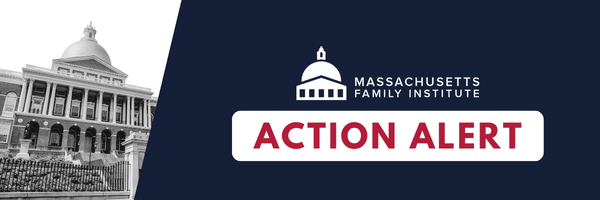As an attorney, I’ve represented churches, individuals, and a small business in free speech, religious liberty, and religious discrimination matters. This means that people often approach me to ask if they can sue the government for violating their constitutional rights.
In recent years, most of these questions have come from parents concerned about the public school system. Some parents are taken aback to learn that government-run schools are teaching a rigid, unabashedly progressive position on ethical, historical, and political issues. They complain to me that any competing viewpoints are ignored—or disparaged as evil—with no meaningful discussion.
Sometimes, these parents assume that the US Constitution gives their children the right to an unbiased education. They hope that I, as a constitutional attorney, can solve this problem. Can I sue the school to force it to “present both sides?” At the very least, can I force the school to stop teaching in such a nakedly ideological way?
These questions are answered by a legal doctrine called “government speech.” The rule of “government speech” is simple: the government is allowed to express the government’s opinions. This also means that the government is allowed to express its opinions to your children in school. There are almost no exceptions to this rule.
To explain “government speech,” I like to give parents a clear example. As far as the US Constitution is concerned, your school district could pass a written policy saying the following: “It is the goal of this school district to indoctrinate students with Marxist views on biology, history, culture, politics, and economics.” Without more, there is nothing that constitutional lawyers could do about this. This would be “government speech.”
There is some good news, however. Although you do not have a constitutional right to an unbiased education, you do have a right to free speech and religious liberty. These rights are protected by the federal constitution, the Massachusetts Constitution, and various statutes. Although school administrators are legally free to indoctrinate your children, they are generally not free to engage in censorship and discrimination.
Consider some examples. Suppose that a qualified educator applies to be a teacher or a school administrator but is rejected because of his or her political or religious beliefs. Or imagine that a teacher is fired—or turned down for a raise or promotion—because of the teacher’s views. This person may be able to sue the school district and win. In other words, while the school is free to teach Marxism, it is not free to punish you for not being a Marxist.
You may sense the problem on the horizon, however. Although I’ve been approached by many parents who want to sue their school over its biased curriculum, I am rarely approached by educators who want to sue their schools for discrimination. Instead, educators with dissenting views tend to fearfully keep these views to themselves. Some Christian teachers have told me that their colleagues do not even know that they are Christians.
What if these educators shared their views appropriately but boldly? If they were disciplined or fired, we might have a good legal case. This would let us strike a blow against indoctrination, widening the ideological diversity of administrators and teachers. Sadly, by passively seeking to avoid conflict, some conservative educators are foreclosing one of our only paths of resistance.
A deeper problem, of course, is that conservatives are unlikely even to pursue careers in education in the first place. Progressives often have a missional zeal for influencing education, culture, and all other areas of society. In contrast, conservatives are more likely to think of themselves as “just living my life”—effectively surrendering education and other social responsibilities to the left. When conservatives choose not to participate in major sectors of society, lawyers cannot mitigate the void with legal remedies.
Fortunately, we also have one last—and most important—line of defense in the school system: students themselves. Just as school districts cannot discriminate against educators, schools also cannot censor your child because of his or her political or religious views.
Before a lawyer can bring a free speech case against your school district, of course, children must exercise their right to free speech. This means that students with alternative views must express their views in class presentations or papers, form official student organizations, or stage appropriate demonstrations that follow neutral school rules.
In fact, when conservative students speak up, the fanaticism of progressives often gives us an advantage. Like totalitarian movements throughout history, many progressives do not know how to have an exchange of ideas. When students disagree with progressive views, officials are sometimes emotionally unable to refrain from censoring them. This can create opportunities for students to prevail against the school district in court.
As in the case of educators, however, cultural problems on the right often hold us back. I once encountered a case of a Christian, pro-life student club that was openly targeted and shut down by their school because of their views. The school was so careless in censoring the group that it would have been a cakewalk to defeat the school in court.
Unfortunately, the Christian students who ran the pro-life club believed that the Christian solution to this injustice was to quietly lay down their rights and not resist. Even threatening to sue the school district, they believed, would be combative and therefore not Christlike.
I will set aside, for another time, the fact that Jesus Christ—unlike many contemporary Christians—never hesitated to boldly confront injustice. Suffice it to say that challenging this unlawful censorship could have sent a strong message to school officials to respect students’ right to free speech while also inspiring other students to exercise their rights.
Concerned parents who go to constitutional lawyers are right to sense that there are many legal solutions to our current problems. Where these parents often go wrong, however, is in assuming that the solutions start with lawyers.
Lawsuits start with clients, not lawyers—and suing the government requires a client to be strong and courageous. Before we can look to the courts for answers, then, we must reform and strengthen the culture of our families, communities, and churches—encouraging them to stand up for what is right in the face of adversity. The law is only as effective as people are brave. As long as principled conservatives lack zeal and boldness, they will lack the benefits of the law.
MFI is committed to protecting students’ and teachers’ rights in public schools. Reach out to us if you feel your right to free speech has been violated.

Ian Huyett, MFI President
Help MFI continue our vital work protecting free speech and religious liberty in the Commonwealth!






